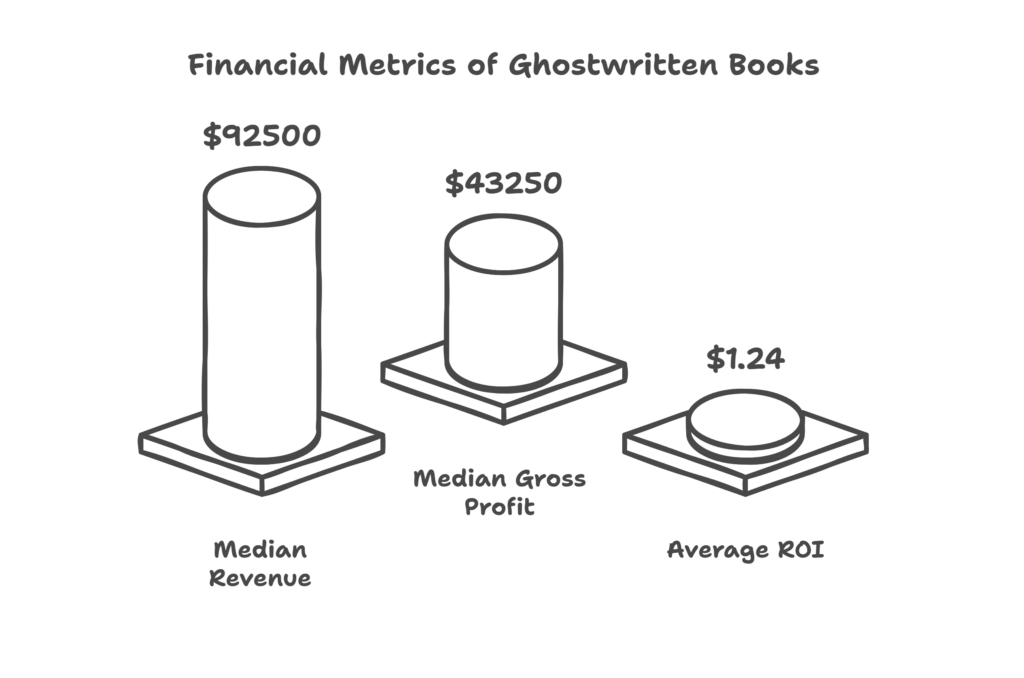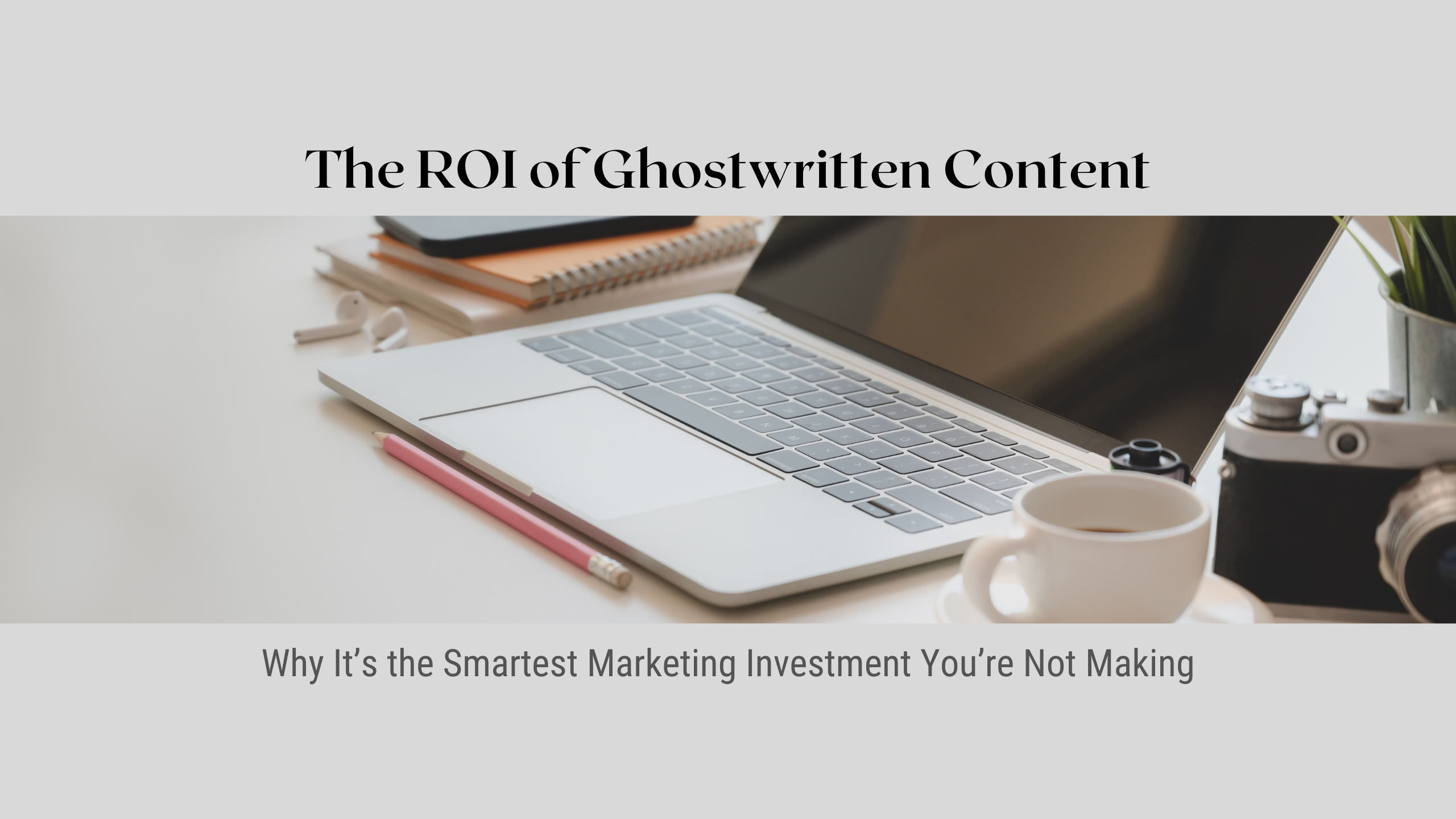A self-published author reached out a while ago. They had an idea they believed in, a partially written manuscript, and a dream to land a book deal. But when we talked about working together, they hesitated. Not because they didn’t believe in the power of a published book, but because they weren’t sure ghostwriting was worth the investment.
Fast forward eight months: their book hit #1 in a niche Amazon category, they were invited to speak on two top industry stages and countless podcasts, and their inbox filled with high-ticket consulting leads. That same person later said, “I didn’t know one book could create so much opportunity.”
This is what ghostwriting does when it’s treated like a growth strategy, not just a writing service. And if you’re serious about growing your business, platform, or authority, investing in a professional ghostwriter is probably the smartest marketing decision you’re not making.
Ghostwriting Isn’t a Cost, It’s Capital
Here’s the thing most first-time authors don’t realize: your book isn’t a product, it’s an asset. Especially when it’s written well.
A high-quality non-fiction book can open doors most marketing strategies never will. It can lead to paid speaking gigs, attract new clients, and establish you as a trusted authority in your space. For small business owners, founders, consultants, or creators trying to go full-time, ghostwriting isn’t just a line item. It’s leverage.
And it’s not just for traditionally published authors. Self-published authors—especially those who take the indie publishing route seriously—are seeing ROI that rivals or even outpaces traditional publishing deals.
When done right, your book becomes the front end of a larger business engine: workshops, podcasts, courses, live events, affiliate partnerships, and more. It’s about building income streams, not just collecting royalty checks.
The Numbers Don’t Lie
A Comprehensive Study of Business Book ROI made one thing very clear: authors who invest in ghostwriting see real returns.
Let’s break it down:
- Median revenue for ghostwritten books: $92,500
- Median gross profit: $43,250
- 64% of books were profitable
- Average ROI: $1.24 for every $1 spent

And that includes a wide range of publishing paths—self-published, hybrid, and traditional. Whether you’re publishing on Amazon Kindle, pitching a literary agent, or uploading directly through KDP, the books that performed best were the ones written with strategy and professionalism.
Ghostwriting wasn’t just a contributor to profitability—it was a key driver.
More Than Revenue: The Influence Multiplier
Here’s what those same authors gained that doesn’t show up in their royalty statements:
- Increased visibility on LinkedIn and social media
- Higher credibility with prospective clients
- Media features, podcast invites, and interview requests
- Better positioning on Amazon (and yes, even in bookstores)
- A stronger personal brand and bigger fan base
Even authors who didn’t land huge book sales still reported wins. Some closed five-figure consulting gigs. Others finally broke into new industries. The common thread? They treated their book like a business asset and brought in the right support team to make it excellent.
Common Pushbacks, and Why They Miss the Point
“It’s too expensive.”
That’s a fair concern. On the surface, ghostwriting can look like a big investment—especially if you’re comparing it to hiring a freelance blogger or copywriter. But writing a book, especially one that’s meant to support your business or brand, is about more than getting words on a page. It’s about strategy, clarity, and creating something that builds real traction. If the book is positioned well, it often pays for itself in ways most people don’t expect at the start.
“I want to keep my voice.”
Great. So do we. Professional ghostwriters don’t replace your voice. They refine it. Your tone, your personality, your stories—only sharper, cleaner, and more compelling. (And yes, we’ll make sure your readers know it’s you.)
“I’ll just write it myself.”
Sure. But writing books—especially good ones—requires time, structure, and follow-through. For full-time professionals or founders juggling a business, that time is hard to find. And most self-published books fail not because the author lacked talent, but because they ran out of time or energy before hitting publish. Even Jefferson Fisher, author of the bestselling book The Next Conversation hired a book coach to help him through the process. When you invest in your book, it pays dividends.
If You’re Serious About Your Book, Treat It Like a Business

There’s a reason successful authors invest in ghostwriting. Stephen King doesn’t do it all alone. Neither do thought leaders, CEOs, or best-selling authors on LinkedIn. They understand that strategy and execution are what separates published from polished, and good from great.
So whether you’re a new author gearing up for your first book or a self-published author trying to break through the noise, the truth is the same: ghostwriting pays off when you treat it like a real investment.
Publishing a book is hard work. But when done right, it positions you for years of influence, opportunity, and yes, income.
Ready to See What Your Book ROI Could Look Like?
Grab the Book Writing Starter Kit—it’s free and packed with tips to help you plan, prioritize, and execute your next (or first) published book.
Then book a free consultation with our team. We’ll talk through your goals, publishing route, timeline, and the smartest next steps to bring your book to life.
Let’s make your book more than something you wrote. Let’s make it something that works.


